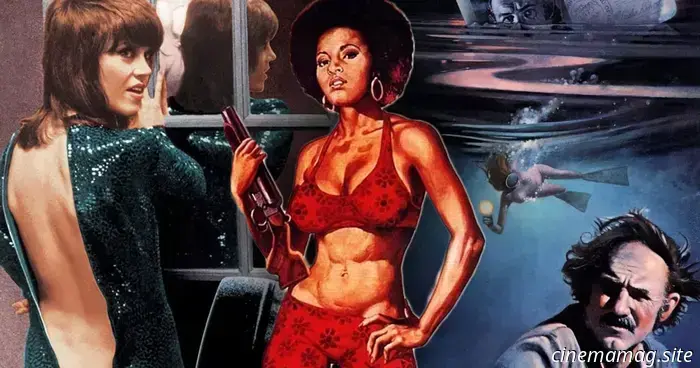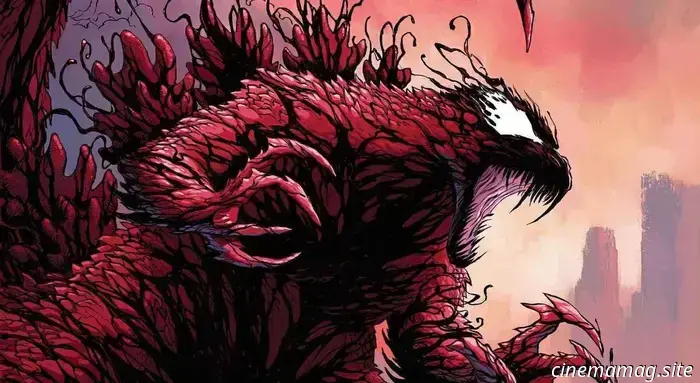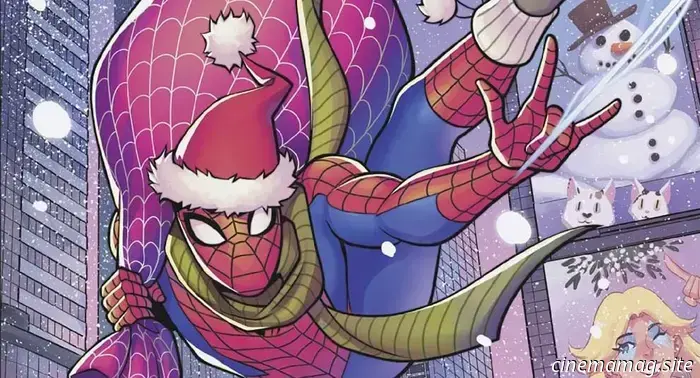
10 Must-See Neo-Noirs from the 1970s for This Noirvember
We continue our Noirvember festivities with ten key neo-noirs from the 1970s. The dark nights, rainy streets, and the brightness of neon lights throughout November give the feeling of being in a neo-noir film. As Noirvember unfolds, we explore a golden age of breathtaking and mercilessly dark neo-noirs. The 1970s might be considered one of Hollywood’s finest decades, with global films also challenging creative limits. Featuring doomed antiheroes and grim mysteries that lack happy endings, here are ten pivotal neo-noirs from the 1970s.
**Night Moves**
The late Gene Hackman had an impressive career in this decade, and while titles like The Conversation and The French Connection are definitely notable noir-tinged thrillers, let’s highlight a lesser-known film that has gained appreciation over time. Night Moves, directed by Arthur Penn, is not your typical private investigator film. Hackman’s character, Harry Moseby, finds himself stuck in a rut professionally and personally. He aspires to emulate Sam Spade in his private investigations, but the reality is reduced to a mundane missing persons case. He is on a relentless quest to solve and uncover truths tied to his past. As he searches for a missing girl (Melanie Griffith as the alluring daughter of an aging Hollywood actress), he becomes entangled in tracking down his unfaithful wife. The primary case may not hold as much weight as Moseby’s introspective journey, yet Penn leads us into a noir-filled labyrinth with a riveting and harsh conclusion. The film also boasts a unique jazzy score by Michael Small.
**Klute**
Night Moves exemplifies a trend of introspective noirs during its era, although it doesn’t quite match the exceptional and largely undervalued achievement of Alan J. Pakula’s Klute. Klute is intricate, captivating, and steamy, featuring two compelling characters portrayed by Donald Sutherland and Jane Fonda (whose role is particularly layered). Shot beautifully in widescreen and evoking a sense of distance yet voyeurism, it's a remarkably crafted film. True to this time period, there are no happy endings, and Pakula expertly captures a feeling of taut paranoia.
**The American Friend**
Wim Wenders’ relaxed, occasionally meandering European thriller is my favorite adaptation of the Tom Ripley tales. Dennis Hopper plays the cowboy hat-wearing Ripley, who recruits a terminally ill frame maker to become an unsuspecting assassin. Straying from typical thriller conventions, Wenders adopts an atmospheric, laid-back style that immerses you in a web of manipulation and murder. The film appears grounded and gritty yet possesses an ethereal quality, enhanced by Robby Muller's stunning cinematography. Bruno Ganz delivers a quietly enigmatic performance, while Dennis Hopper exudes casual charm.
**The Killing of a Chinese Bookie**
John Cassavetes was a pioneering independent filmmaker who paved the way for aspiring artists to bring their visions to life without studio backing. While many of his notable works focus on character-driven stories, he ventured into neo-noir with The Killing of a Chinese Bookie. Ben Gazzara portrays a smooth strip club owner who gets entangled with a mob boss and finds himself deep in debt due to a gambling addiction. He faces either a grim repayment or a job to erase that debt. Similar to contemporary films like Uncut Gems, this film bristles with dynamic intensity as the character makes increasingly misguided decisions. Yet, Gazzara’s charm compels us to root for this deeply flawed man.
**The Long Goodbye**
Elliot Gould radiates mumbling, effortless charm in Robert Altman's stylish 70s adaptation of Raymond Chandler’s The Long Goodbye. As the titular detective Philip Marlowe, Gould stylishly slips into a murder mystery when an old friend he assists becomes the main suspect in his wife's murder, with Marlowe viewed as an accomplice. He embarks on a journey to solve the case and exonerate himself, leading to a series of twists. The film receives a distinctly 70s cinematic treatment, culminating in a somber conclusion, complemented by a brilliant script (they could actually write back then).
**Bring Me the Head of Alfredo Garcia**
This gritty classic from Sam Peckinpah may have flown under the radar compared to films like The Getaway and The Wild Bunch. It’s a somewhat unpleasant yet fascinating neo-noir Western involving Alfredo Garcia, who becomes a target after impregnating a crime lord’s daughter. Bennie, played by the exceptional Warren Oates, is one of the men assigned to execute the hit. As Bennie delves into increasingly murky depths, the film grows more intriguing, presenting various undesirable characters along the way. True to Peckinpah’s style, the movie features stylish and brutal bursts of violence. Recent HD and 4K restorations have made it visually stunning.
**The Yakuza**
Private detectives are a cornerstone of noir, and in











Other articles
 The Top 13 Serial Killer Films of All Time, Ranked
Here are the 13 finest serial killer films ever created. Some of these are considered some of the greatest films of all time, without exception.
The Top 13 Serial Killer Films of All Time, Ranked
Here are the 13 finest serial killer films ever created. Some of these are considered some of the greatest films of all time, without exception.
 Continuing from Apollo Creed and Adonis Creed, Hiya Toys has introduced the latest figure in its Exquisite Super Series 1:12 scale Rocky collection, featuring Ivan Drago, based on his likeness...
Continuing from Apollo Creed and Adonis Creed, Hiya Toys has introduced the latest figure in its Exquisite Super Series 1:12 scale Rocky collection, featuring Ivan Drago, based on his likeness...
 Comic Book Sneak Peek – Godzilla Destroys the Marvel Universe #5
Godzilla Destroys the Marvel Universe #5 is set to be released this Wednesday, and you can check out the official preview for the finale of this limited series crossover below, provided by Marvel Comics…
Comic Book Sneak Peek – Godzilla Destroys the Marvel Universe #5
Godzilla Destroys the Marvel Universe #5 is set to be released this Wednesday, and you can check out the official preview for the finale of this limited series crossover below, provided by Marvel Comics…
 Comic Book Sneak Peek – Spider-Man: Holiday Spectacular #1
Christmas is arriving slightly ahead of schedule in the Marvel Universe with the release of Spider-Man: Holiday Spectacular #1 this week. You can take a look at a preview of the holiday-themed one-shot below with the official...
Comic Book Sneak Peek – Spider-Man: Holiday Spectacular #1
Christmas is arriving slightly ahead of schedule in the Marvel Universe with the release of Spider-Man: Holiday Spectacular #1 this week. You can take a look at a preview of the holiday-themed one-shot below with the official...
 Mattel introduces new Origins action figures from the Masters of the Universe x ThunderCats collaboration.
After combining the two legendary 80s franchises earlier this year for a fresh mash-up action figure series, Mattel has now revealed the next collection of Masters of the Universe x ThunderCats Origins figures.
Mattel introduces new Origins action figures from the Masters of the Universe x ThunderCats collaboration.
After combining the two legendary 80s franchises earlier this year for a fresh mash-up action figure series, Mattel has now revealed the next collection of Masters of the Universe x ThunderCats Origins figures.
10 Must-See Neo-Noirs from the 1970s for This Noirvember
We carry on celebrating Noirvember with ten key neo-noirs from the 1970s… With the shadowy evenings, the wet rainy roads, and the brightness of neon signs, November brings…
